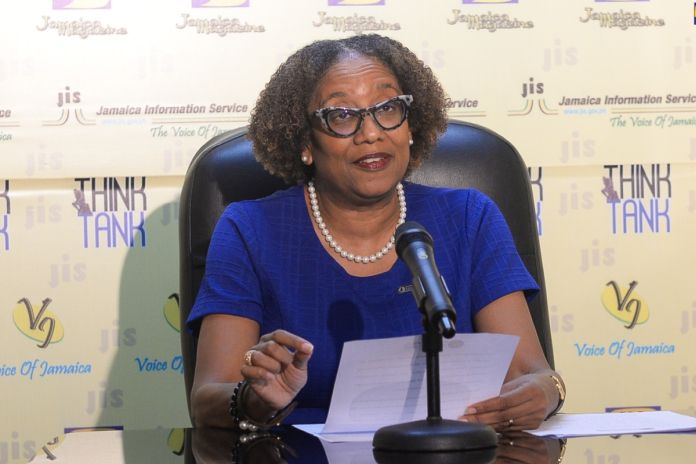Development Bank of Jamaica enhances public services, drives economic growth

By Jermi-Lee Nelson
KINGSTON, Jamaica, (JIS) – The Development Bank of Jamaica (DBJ) continues to play a pivotal role in enhancing public services and driving economic growth, through its public-private partnerships (PPPs) and privatisation initiatives.
General manager for Public-Private Partnerships and Privatisation Services at the DBJ, Denise Arana, informed a JIS Think Tank on September 17 of the bank’s critical role in supporting ministries, departments and agencies in developing and executing transactions.
“We assist with identifying funding for project preparation, and we are passionate about building the capacity of Jamaican practitioners and officials to properly develop and implement PPP and Privatisation transactions,” Arana added, that since 2009, the DBJ has supported and completed 38 privatisation and PPP transactions, generating a value of US$1.7 billion. Of this amount, US$464 million represents revenues to the Government and US$1.25 billion in investments generated.
“PPPs are long-term contractual arrangements between government entities and private-sector companies to provide essential public infrastructure and services. These partnerships introduce private-sector efficiencies and innovative technologies, enhancing sustainable service delivery and providing greater value for money to the public,” Arana explained. And further emphasised the importance of PPPs to Jamaica, highlighting the DBJ’s part in the development and implementation of several key PPPs, including the Norman Manley International Airport, and the Kingston Container Terminal.
“These projects have and will enhance the quality of life of Jamaicans. Improved transportation and logistics networks facilitate the efficient movement of goods and people across the island and internationally,” Arana said.
Privatisation involves transferring ownership or management of public assets or services to the private sector, often through the sale or lease of State-owned enterprises or assets.
Arana noted that this approach aims to increase efficiency, reduce public-sector costs, improve service delivery, and stimulate economic growth by leveraging private-sector capital, expertise, and management practices.
“Privatisation projects we have worked on include Caymanas Track Limited, Petcom, Wigton Windfarm, and lands for the German Ship Repair project, and more recently lands in the Greater Bernard Lodge Development area for light industrial, commercial and residential development. These initiatives generate substantial revenue for the Government, which can be reinvested into sustainable public investment projects, reducing public debt and creating a more robust economic foundation,” she said.
The DBJ’s PPP and privatisation efforts have already yielded significant successes with the Wigton Windfarm privatisation in 2019, broadening the ownership base in the economy, with 31,000 Jamaicans owning shares in a renewable energy company.
Meanwhile, the Kingston Container Terminal Concession, signed in 2015 with Kingston Freeport Limited, has led to a 49 percent increase in annual throughput along with significant infrastructure improvements.
“Ultimately, PPPs and privatisation help build a more resilient Jamaica by fostering sustainable growth and increasing competitiveness, and through these strategic partnerships, we are laying the groundwork for a future where every Jamaican can enjoy improved infrastructure and services,” said Arana.
The DBJ serves as the government’s central implementing agency for Jamaica’s PPP and privatisation programmes.
Source: caribbeannewsglobal.com

